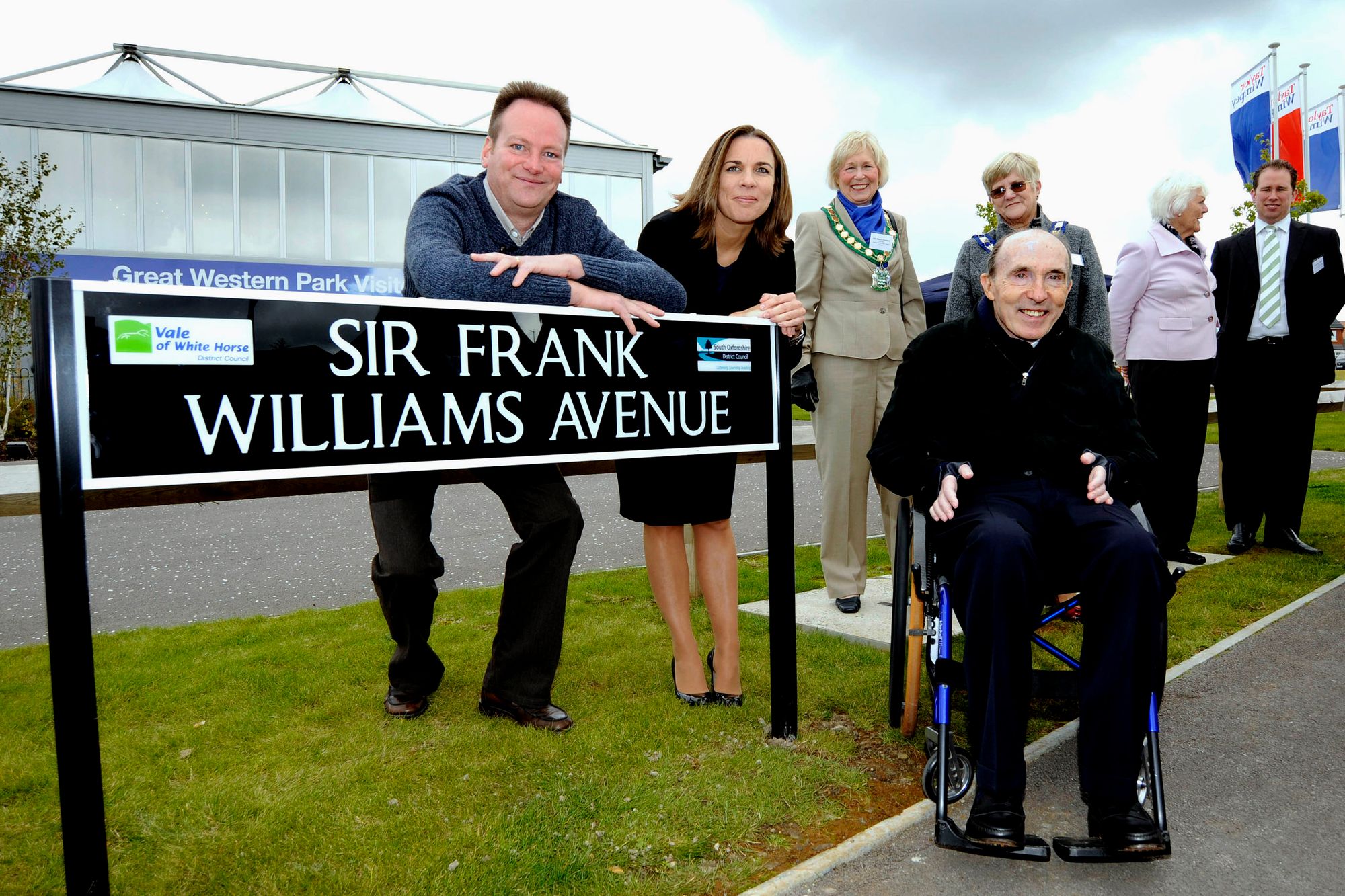Williams F1: From Sir Frank to Claire - A Family's Journey in Motorsport
The Williams F1 team is one of the most successful teams in Formula 1 history, following its foundation in 1977, under the leadership of Sir Frank Williams.

I. Introduction
The Williams F1 team is one of the most successful teams in Formula 1 history, following its foundation in 1977, under the leadership of Sir Frank Williams. The Williams family has been integral to the team's success, with Sir Frank's daughter Claire Williams serving as Deputy Team Principal from 2013 to 2020, while Sir Frank's wife, Virginia Williams, was also involved in the team's early years, managing the administration and finances. This article will explore the Williams family's journey in motorsport, from Sir Frank's humble beginnings to Claire's departure from the team. It will examine the team's successes and challenges, and the family's contributions to the sport.
II. Sir Frank Williams and the Early Years
Sir Frank Williams (born April 16, 1942) is a British businessman and former Formula One team owner. He founded Williams Grand Prix Engineering in 1977, which went on to become one of the most successful teams in Formula One history. Williams grew up around cars and racing, with his father owning a garage and repair business. After serving in the Royal Army Service Corps, Williams worked for several racing teams before founding his own.
Throughout his career, Williams was known for his determination and commitment to success, despite facing numerous challenges and setbacks. Under his leadership, Williams Grand Prix Engineering won 9 Constructors' Championships and 7 Drivers' Championships, with drivers including Alan Jones, Keke Rosberg, Nelson Piquet, Nigel Mansell, Alain Prost, and Damon Hill.
In 1986, Williams was involved in a car accident that left him paralyzed from the neck down. Despite this, he remained actively involved in the team and continued to attend races until his retirement in 2020. Williams was knighted in 1999 for his services to motorsport and unfortunately passed away in 28 November 2021, at the age of 79 years.
III. The Golden Years
During the 1980s and 1990s, the Williams F1 team was one of the most dominant forces in Formula One. With the combination of their highly competitive cars and exceptional drivers, they won numerous championships and set records that are still recognized to this day.
In 1980 Jones became the first of seven Williams drivers to win the Drivers' Championship, 17 points ahead of Nelson Piquet's Brabham. Williams also won its first Constructors' Championship, scoring 120 points, almost twice as many as second-placed Ligier.
In the 90s the team's first championship came in 1992, when Nigel Mansell won the title with nine victories out of sixteen races. The following year, Alain Prost joined the team and won his fourth world championship. In 1994, Williams continued their success with the signing of Ayrton Senna, who had previously won three world championships with McLaren.
Unfortunately, Senna was killed in a crash during the 1994 San Marino Grand Prix. Despite the tragedy, Williams continued to dominate, with the team winning the Constructor Championship that year. The success continued and Williams end up winning both the constructors' and drivers' championships in 1996 and 1997. The team's success during this era was due to a combination of factors, including their talented drivers, cutting-edge technology, and a highly skilled technical team.
Patrick Head and Adrian Newey were key members of the Williams F1 team during their successful years in the 1990s. Patrick Head was the technical director of the team, responsible for the design and development of the car. He was known for his innovative designs and helped create several championship-winning cars.
Adrian Newey, who later went on to work for other successful teams such as McLaren and Red Bull Racing, was also a key member of the Williams team. He was the chief designer and was responsible for the aerodynamic design of the car. His designs were revolutionary and helped the team dominate in the 1990s.
Together, Head and Newey helped create some of the most successful cars in Formula 1 history, including the Williams FW14B and FW18. Their contributions were crucial to the team's success and helped cement Williams as one of the greatest teams in the history of the sport.
At the 1997 British Grand Prix, Jacques Villeneuve scored the team's 100th race victory, making Williams one of only four teams in Formula One, alongside Ferrari, McLaren, and Mercedes to win 100 races. Williams nine Constructors' Championships between 1980 and 1997 was a record until Scuderia Ferrari won its tenth championship in the year 2000.
IV. The Decline
After the success of the 1990s, Williams experienced a decline in the 2000s. Despite the occasional podium finish and pole position, the team struggled to compete with the likes of Ferrari and McLaren for championships. One issue was the loss of key personnel, such as Adrian Newey, who left to work for McLaren in 1997. Patrick Head also stepped down as technical director in 2004, and this change in leadership had a significant impact on the team's performance.
Another reason for this drop in performance was their inability to secure a successful partnership with an engine manufacturer. In 2000, Williams signed a partnership deal with BMW, but despite a few initial successes, the team was unable to consistently challenge for the championship. After BMW withdrew from the sport in 2005, Williams struggled to find a suitable engine supplier, and the team's performance suffered as a result. Williams briefly partnered with Cosworth in 2006, but the engine was not competitive enough to challenge the top teams. In 2007, Williams partnered with Toyota, but again, the team struggled to achieve significant success. The partnership lasted until 2009 when Toyota withdrew from the sport altogether. Throughout this period, Williams' lack of a competitive engine severely impacted the team's ability to compete at the highest level, and it was only in the latter part of the decade that they were able to improve their performance with the introduction of the Cosworth CA2010 engine.
The team also faced financial difficulties and ownership changes during this period, with BMW taking a majority stake in the team in 2005 before selling it back to Sir Frank Williams and Patrick Head in 2009.
V. The Next Generation
Claire Williams Era
Following the sale of a majority stake in the Williams F1 team, Sir Frank Williams' daughter, Claire Williams, was introduced to the team in 2010. She started as a communications officer and quickly moved up the ranks to become the deputy team principal. Claire's appointment was a significant moment for the team as it marked the first time a woman had held such a prominent role in Formula 1. Under her leadership, the team saw some notable improvements in the early 2010s, including a third-place finish in the Constructors' Championship in 2014.
However, since then, the team has struggled to maintain its position and has consistently finished in the lower half of the standings. In 2018, the team faced a major challenge when they lost their title sponsor, Martini Racing, and struggled to secure a replacement. This led to a reduction in the team's budget and a subsequent decline in performance.
Claire Williams has also faced criticism for her management style, with some questioning her ability to lead the team effectively. In September 2020, she announced that she would step down from her role as Deputy Team Principal at the end of the season, citing the need for new leadership to take the team forward.
Despite the team's recent struggles, Claire Williams has been credited with making the team more inclusive and diverse, with initiatives such as the Dare to be Different campaign aimed at encouraging more women to pursue careers in motorsport.
Dorilton Capital
In 2019, the Williams family sold a majority stake in the team to Dorilton Capital, a US-based venture capitalist firm. The decision came after several years of financial struggles for the team, with poor on-track performance and a lack of major sponsors. The sale allowed the team to secure its future and invest in its long-term success.
While the Williams family stepped back from day-to-day management of the team, Claire Williams, the daughter of Sir Frank Williams, remained in her role as Deputy Team Principal for another year. In a statement at the time of the sale, she emphasized the family's continued commitment to the team's success and the importance of maintaining its British identity and heritage. During the last two seasons the Team Principal of the Williams Racing Team was the Jos Capito, most known for his successful role as a Director of Motorsport at Volkswagen.
For the 2023 season Williams Racing announced that James Vowles is becoming its new Team Principal. James joined the team on 20 February, ahead of the Grand Prix in Bahrain. James became only the third Team Principal in the 46-year history of the Grove squad, after Frank Williams and Jost Capito. The 43-year-old Brit has been instrumental in securing nine F1 Constructors’ Championships for Mercedes F1 Team and has overseen over 120 race victories.
As a driver line-up, the Williams Racing team have confirmed for the 2023 season the Thai driver Alex Albon and the American rookie Logan Sargeant. Sargeant made his F1 debut at COTA this weekend, replacing the outgoing Nicholas Latifi in FP1, thus becoming the first American driver to take part in an F1 weekend since 2015.
VI. Conclusion
The Williams family has played an integral role in the success of the Williams F1 team. Sir Frank Williams' dedication and perseverance led the team to multiple championships and established its place as one of the most successful teams in F1 history. Despite the challenges the team has faced in recent years, Claire Williams' leadership has brought stability and optimism to the team, demonstrating the family's continued commitment to the sport.
With the recent sale of a majority stake to Dorilton Capital, the future of Williams F1 remains uncertain. However, with new leadership and fresh investment, there is hope that the team can return to its winning ways. The Williams family's legacy will undoubtedly endure, and their contributions to the sport of Formula 1 will be remembered for generations to come.

